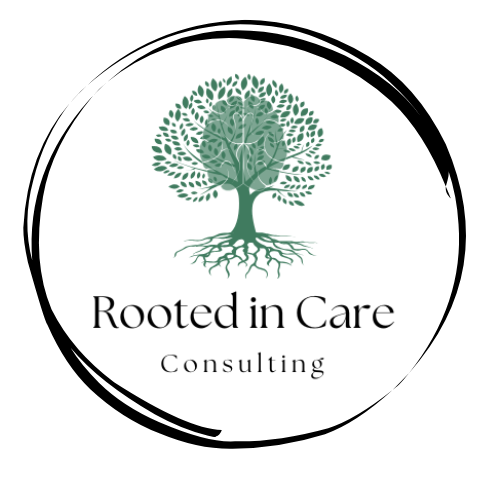Why Skilled Care in Dementia Matters
Without skill, there is the potential for harm.
Skilled Dementia Care: What Does It Really Mean?
When you hear the phrase “skilled dementia care,” what comes to mind?
For me, I thought I knew exactly what it meant until I went through my certifications in Teepa Snow’s Positive Approach to Care® (PAC). Those trainings completely changed my perspective. The skills I learned weren’t just interesting, they were the kind of “ah-ha” moments that totally change you. Those moments where all the pieces truly start to fall into place. You can immediately relate them to situations you have encountered and see how you can use these new found skills going forward.
A Little About Me
My name is Colleen Nolan, and I’m a certified speech-language pathologist (SLP) with more than 20 years of experience. Before stepping into the dementia space, I worked primarily in pediatrics supporting children with disabilities and those who are neurodivergent.
When I made the shift to dementia care, I immediately noticed something familiar: many individuals who struggled to express themselves resorted to behaviors to communicate. Even those who could still speak were not always making sense because the parts of the brain responsible for language processing and speech were, well, dying. What often followed? Behaviors that many of us misinterpret. Moments of distress.
My message as an SLP has always been “all behavior is communication,” and I’ll be honest, I often misinterpreted too. Despite my background and training, there were moments I found myself misunderstanding, mislabeling, and sometimes even causing unintentional harm. Not because I didn’t care, but because I didn’t have the right tools.
That’s the thing, isn’t it? Most of us never set out to cause harm, but without the right knowledge, training, and skill, it happens.
Why PAC™ Training Was Different
Most of my past continuing education courses followed the same formula: hours-long lectures, slides, and theory. Rarely any practical skills training. PAC™ training was different.
It was active, hands-on, and practical.
Minimal lecture, maximum practice.
In-the-moment role play.
Repetition and feedback.
Real-life application with video review and mentoring before receiving certification.
This approach didn’t just give me knowledge, it built skills I could actually use in my work with people living with dementia and their care partners. And now, my goal is to pass those skills along to others because the current culture of care needs to shift.
Let’s Look at a Real-Life Example
Here’s an example of a common story I might hear from care partners:
“She gets so agitated and angry with me. I go into her room to wake her up and she immediately starts screaming. I speak calmly, stroke her hair, and tell her she’s safe, but she hits me! I tell her, ‘It’s me, your daughter,’ and she insists she doesn’t have a daughter and tells me to get out of her house.”
Oof! Can you relate? When you read this, do you think the daughter is trying to cause harm? Of course not. She loves her mom and is doing her best.
She has awareness that what she is doing isn’t working. But what’s missing? Knowledge and skill.
Same Scenario, More Skill
Here’s how that same moment might play out when the daughter has some training in PAC™:
“I knocked on mom’s door and called her name like you suggested. When she didn’t respond, I walked toward the bed, knelt down at arm’s distance, and called her name again. When she still didn’t respond, I placed my flat hand with gentle pressure on her knee joint. When her eyes opened, I said, ‘Hey Alice (pause). It’s Jane (pause). [pointing] I like your bedspread.’ I gave her a moment to respond. Then I pointed to the window: ‘Ooo, Alice (pause), it’s morning (pause).’ Next, I showed her the robe: ‘I got your robe (pause). Want to put it on? (pause) Or use the bathroom first?’”
Do you see the difference?
The daughter is now equipped with a process, a rhythm, and practical skills that honor her mom’s reality instead of colliding with it.
Why It Matters
That’s the heart of skilled dementia care. It’s not just about being calm, kind, or patient. Those things are important, but unfortunately they’re not enough. Skilled dementia care is about learning and practicing specific techniques that actually work with a changing brain.
And it matters across all situations: skilled care communities, hospitals, doctor visits. If everyone involved in the care of the person living with dementia has a basic level of skill in how to adapt and adjust interactions and communication; how to see behavior as communication of an unmet need; how to pause, reflect, the ripple effect would be unmistakable- less distress, more ease.
It’s about moving from frustration and conflict to connection and cooperation. It’s about putting relationship first.
And it’s about giving care partners the confidence that they can do this and they don’t have to do it alone.
PAC disclaimer:
PAC Certified Independent Trainers&Consultants are not employees of Positive Approach, LLC.
The opinions and views expressed by PAC Certified Independent Trainers&Consultants do not necessarily reflect the opinions and views of Positive Approach, LLC or any of its employees. Positive Approach, LLC is not liable for any actions by PAC Certified Independent Trainers&Consultants.


